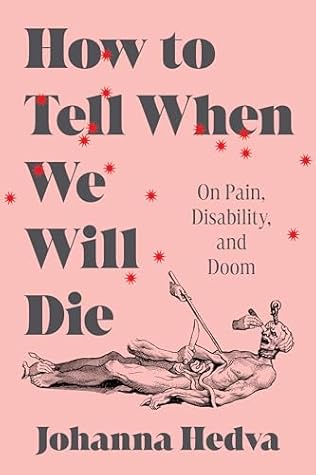More on this book
Community
Kindle Notes & Highlights
Read between
August 26 - September 7, 2025
We tell ourselves that our personalities are defined by our brilliance, curiosity, orneriness, and passion, not our panic, brain fog, or fatigue. We speak of strengths and weaknesses—it’s how we categorize everything—and we never get creative with these. We count among our strengths our strength, and among our weaknesses, our weakness, and the only radicality we can yield to this binary is to invert it, to count what is usually considered weak as maybe some other kind of strength.
I am in agreement with those in the disabled community who would portend that, no matter how it arrives, disability will arrive for everyone, sooner or later. In a way, this vastly disparate category is the most universal condition of all—the horizon of it is just closer to some than others. It is always there, and the question is not if but when it will arrive for you. This is not the same as any other political identity. Not everyone on this planet will one day become queer or not white or a woman or colonized, but they will become disabled.
“wellness,” as it is talked about and sold in America today, is a white and wealthy idea.
“This is the oppressor’s language,” Adrienne Rich wrote in 1971, “yet I need it to talk to you.” Of course, I fucking hate that in order for my testimony to be validated as true, I have to legitimate myself in this way.
Endometriosis, which is a disease of the uterus where the uterine lining grows where it shouldn’t—in the pelvic area mostly, but also anywhere, the legs, abdomen, even the head. It causes chronic pain; gastrointestinal chaos; epic bleeding; in some cases, cancer; and means that I have miscarried, can’t have children, and have a surgery or two to look forward to. It means that every month, those rogue uterine cells that have implanted themselves throughout my body “obey their nature and bleed,” to quote fellow endo warrior Hilary Mantel. This causes cysts, which eventually burst, leaving behind
...more
When I explained the disease to a person who didn’t know about it, she exclaimed: “So your whole body is a uterus!” That’s one way of looking at it, yes.
I try to keep close something someone else once said to me when I told them how confusing this disease has been as a person who does not identify as a woman: “Well, you shouldn’t identify as a uterus either.” (But can a dysfunctional body part ever not be pathologized, pathologizing?)
I have started to identify as neurodivergent, because many of my “symptoms” are not symptoms at all, but simply the way my mind works, and here we are again in that multiplicity that is disability.
Because to stay alive, capitalism cannot be responsible for our care—its logic of exploitation requires that some of us die. For capitalism to support care would be the end of capitalism.
relationship to other people, objects, and surroundings outside of myself. The official language of the diagnostic criteria in the Diagnostic and Statistical Manual of Mental Disorders
Hermeneutical power is the power to disagree with what those in actual power and their institutions say is true about you.
insanity is the only sane reaction to the conditions of patriarchy,
Never let a straight man think he’s better than you.
Her wallet had her bus pass, twenty dollars, her library card, her disability pass. We kept sobbing and saying, “Her little life. Her little life.” How hard she tried.
My little life—there is nothing to recover.
Caravaggio’s Lute Player.


